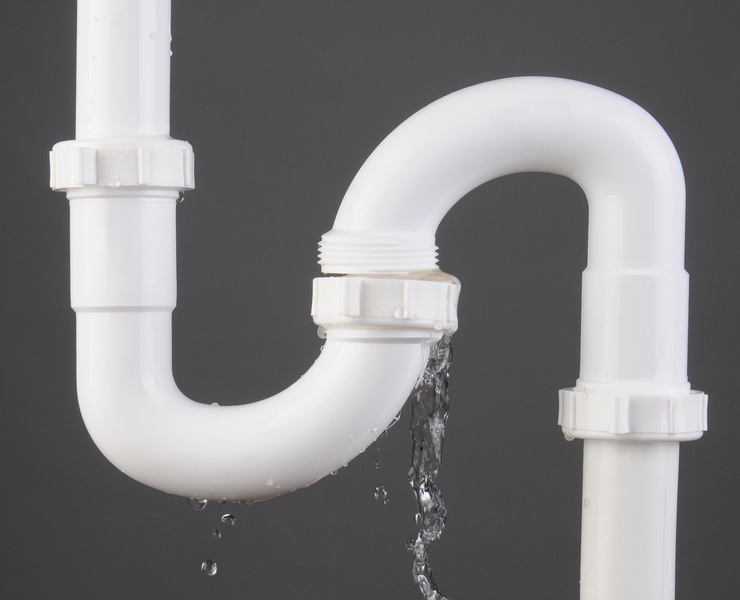Overview To Water Leakage Detection At Home
Overview To Water Leakage Detection At Home
Blog Article
How do you really feel in regards to Hacks to detect leaks?

Early discovery of dripping water lines can minimize a possible calamity. Besides conserving you money, it will reduce the irritation and disappointment. The moment you find a leak, calling your plumber for repairs is the best solution. Some tiny water leakages might not be visible. If you can not discover it with your naked eyes, here are some hacks that aid.
1. Take A Look At the Water Meter
Every home has a water meter. Checking it is a proven manner in which helps you uncover leakages. For starters, switch off all the water sources. Guarantee no person will certainly flush, make use of the faucet, shower, run the cleaning maker or dishwasher. From there, most likely to the meter as well as watch if it will transform. Because no one is utilizing it, there should be no activities. If it moves, that shows a fast-moving leak. If you discover no adjustments, wait an hour or 2 and examine back again. This suggests you may have a slow-moving leak that might also be underground.
2. Inspect Water Intake
Evaluate your water bills as well as track your water consumption. As the one paying it, you ought to discover if there are any type of disparities. If you detect sudden changes, despite your intake being the same, it indicates that you have leaks in your plumbing system. Bear in mind, your water costs should fall under the same variety every month. An abrupt spike in your costs shows a fast-moving leakage.
At the same time, a consistent increase every month, despite having the exact same routines, reveals you have a slow leakage that's also slowly intensifying. Call a plumber to completely inspect your residential or commercial property, particularly if you feel a cozy location on your floor with piping beneath.
3. Do a Food Coloring Test
When it comes to water consumption, 30% comes from toilets. If the color somehow infiltrates your dish throughout that time without flushing, there's a leakage between the tank and also bowl.
4. Asses Exterior Lines
Do not forget to check your outdoor water lines as well. Test spigots by attaching a garden hose pipe. Needs to water permeate out of the connection, you have a loose rubber gasket. Replace this and ensure all links are limited. If you have actually obtained a lawn sprinkler, it will certainly aid get it expertly examined and maintained annually. One little leak can lose tons of water and spike your water costs.
5. Evaluate as well as Analyze the Circumstance
Property owners should make it a habit to inspect under the sink counters and even inside cabinets for any kind of bad odor or mold development. These 2 red flags indicate a leakage so punctual focus is needed. Doing regular assessments, even bi-annually, can conserve you from a major trouble.
Inspect for discolorations and damaging as most pipelines and home appliances have a life span. If you suspect dripping water lines in your plumbing system, do not wait for it to intensify.
Early discovery of dripping water lines can alleviate a possible catastrophe. Some little water leakages may not be noticeable. Examining it is a surefire means that helps you find leakages. One small leak can lose lots of water and increase your water costs.
If you suspect leaking water lines in your plumbing system, don't wait for it to escalate.
5 Signs that Your Home Has a Hidden Leak
Your water bill is unusually high without explanation
Generally, your water bill tends to stay consistent throughout the year as long as the same number of people live in your household year round. The bill might be higher during certain times of the year, such as summer, when your lawn may require more watering than it does in cooler months. However, if you notice a rise in your water bill that you can’t explain, it’s an indicator that there’s a hidden leak somewhere in your home.
You hear running water
One of the biggest signs that you have a water leak is the sound of rushing water when no plumbing fixtures are on and when no water-using appliances are running. If you hear running water in your walls when no water is being used anywhere in your home, locate your home’s main water shut-off valve, shut off your water supply, and contact a plumber at once.
Your home smells musty
Hidden leaks often occur in dark spaces, such as behind walls or under carpeting. Incidentally, darkness and moisture can create an ideal breeding environment for mold or mildew. If you start to smell mildew or the scent of rotting wood or stagnant water around your home, it’s a fair bet that a leak is the culprit.
You find wet spots around your home
The wet spots usually show up as moist areas in your carpeting. If your home has a basement level, puddles on the floor could indicate a slab leak. Outside, unexplainable puddles or lush, green patches in your yard often mean that there’s a leak in your sewer line or main water line.
You have stains, bubbles, or condensation on your walls/ceiling
Stains or condensation on your walls or ceiling are both major signs of a hidden leak. Also, drywall (AKA. sheetrock) is very absorbent, and as it takes on more water from a leak behind a wall, it will start to bubble, swell, or warp. If you see this happening in your home, don’t wait to contact a plumber before the water damage spreads.
https://www.ezflowplumbingaz.com/blog/2019/june/5-signs-that-your-home-has-a-hidden-leak/

I hope you enjoyed our excerpt about Locating water leaks. Thanks for spending some time to browse our article. Please take a moment to share this entry if you liked it. Thank you for your time invested reading it.
Report this page